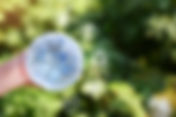
Search Results
2 results found with an empty search
- Premier Digital Textiles and Select Textiles strengthen international alliance
A key selection of Premier Digital Textiles’ range is now available in Australia, strengthening their global partnership. Select Textiles, which is headquartered in Kingsgrove, Sydney, New South Wales, has been distributing UK-based Premier Digital Textiles’ (PDT) range of fabrics across Australia and New Zealand for two years. The two companies have now cemented their like-minded sustainability commitments by taking their alliance to another level. Mitesh Patel (PDT) and Gary Di-Losa (ST) at Premier Digital Textiles office, Bury. Select Textiles Director Gary Di-Losa said: “It is with pleasure I can announce that a key selection of the Premier Digital Textiles range is now available in Australia by stock service from Select Textiles. “This is a major boost to an emerging industry as it ensures that quality, pre-treated solutions are now available locally and this limits the need for unnecessary air freight expenses, volume commitments and the long lead times synonymous with sourcing directly from overseas. “It is our intent to continue to expand on this stock-service range in line with the growth of the industry and our customers.” Select Textiles is a leading textile supplier dedicated to delivering high-quality fabrics and textile solutions to the global print, exhibition, sign and display markets. Premier Digital Textiles (PDT) is Europe's leading supplier for quality coated fabrics for digital textile printing and is part of the Premier Textiles Group of businesses. Premier Textiles was founded in 1981 and has more than 50,000 sq ft of modern warehousing space in Stockport and Bury, northwest England. Mitesh Patel, PDT Sales and Development Manager, said: “We are delighted to announce the next step in our partnership journey with Select Textiles. “Like Select, we have a passion for innovation, research and development so we can remain at the forefront of technological advancements and market trends. “This partnership has sustainability at its heart as environmental stewardship is a commitment we share and take very seriously.” Select Textiles Director Gary said: “Select Textiles is committed to sustainability across our operations, by working with like-minded companies, who source ethically and responsibly. An awareness of our impact on the environment is the cornerstone to sustainability and as such is a mindset, we drive right through our supply chain. “All our products are REACH compliant and all aspects of our supply chain have sustainability programs in place.” He added: “PDT are at the forefront of innovation and have been leaders in the growth of the pigment ink sector. “Their pretreatment chemistry is without peer and the extensive and diverse nature of their product offering, made them the logical partner to work alongside. “A sourcing and supply mindset that mirrors ours and a focus on bringing greater levels of environmental awareness to our respective industries, were the motivating factors behind the expansion of our partnership. “And the ability to share innovation and market trends will continue to see the two entities strengthen their respective standings in the market.”
- What is Recycled Polyester?
Whilst not the complete solution to the world's issues, it is a step in the right direction! To understand the relevance, it is important to understand the production process and its associated benefits. 1. Recycled Polyester – How is it Different? Recycled Polyester uses PET (plastic bottles) as the raw material. 2. The processes involved... Collected PET bottles are sterilised, dried, and crushed into small flakes The Flakes are then put through a depolymerisation and re-polymerisation process and converted to chips The chips are then heated and passed through a spinneret to create strings of yarn. The yarns are then passed through a crimping machine to create a fluffy yarn texture.The yarn is then baled, dyed, and knitted into Polyester fabric. 3. Ecological Benefits This process uses much less energy (nominally 35-50% less) than is required to produce virgin polyester yarn. This process reduces the dependency on petroleum as the raw material Utilising PET bottles for this process reduces landfill, thus less soil contamination air and water pollution. Recycled Polyester can be recycled over and over with little to no degradation of quality allowing wastage minimisation. As processes develop, this means polyester has the potential to become a closed loop system, whereby it is used, recycled, and reused again. In this case the non-biodegradability of polyester could be a good thing.


